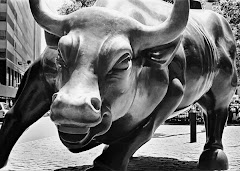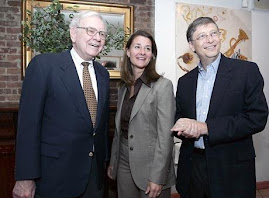Today, I am going to share my worst holiday, something unrelated to investment management. I jot it down here partly to apologise to my best friend Joshua and his wife Lessie for the most unfortunate event. The damage was severe.
At The BeginningSomewhere in mid-2007, during an old-buddies gathering, one of my “brothers”, Joshua, revealed that he and his family will be going to Manila In Nov for visits and holiday. Joshua was previously posted to Manila and spent a few years there. So he is very familiar with the country. Instantly I expressed my interest since I had been deprived of distant travel for couple of years. Another brother also expressed his interest. A few months later, this brother decided not join us as his wife just gave birth to a baby. But I was determined to go according to plan. In Oct, I visited Joshua new home to discuss on itinerary. The plan was as follow:
Duration – 14 days (24 Nov to 7 Dec 2007)

Place to visit – Boracay Island, Sonya's Garden and Manila City
Initial budget - S$2,000
But Joshua and his family will flew off a few days earlier for visiting purposes. And they will pick me up at the airport upon my arrival. As safety was always my first concern, I choose to fly on SIA instead of any other airline especially budget airline. While budget airline cost less than S$200, SQ will cost me S$650. But I accept it. This is the first time I am flying alone and I am set to go.
During The Last MonthIn early Nov, local news reported a bomb blast in Manila.

I was shocked and disappointed although I already knew The Philippines’ always has security issue especially at the southern part. But I still take the courage to ignore it. The reason was because they don’t get bomb blast everyday and everywhere. With proper safety measures, it should be fine. For example, avoid loitering around hotel lobby or shopping mall entrance. Anyway, since Joshua is not worry at all, there is no reason I should. In fact, I go around joking with colleagues that if a bomb hit me, then it is God’s will – if it is my time, it is my time!!!
I visited Joshua again to do my budget. I am an analyst, I am a finance guy and I never believe in “no plan is best plan”. However, when we sat down to do the figures, I was shocked to discover that I have to up my budget to S$3,000 - S$4,000 mainly due to long period of hotel stay. Spending more than S$3,000 in The Philippines will make me a laughingstock. I might as well go to Australia or even Japan. But Joshua assured me that, although I need to up my budget, S$3,000 is guaranteed to be sufficient. So I booked my air-ticket while Joshua booked all hotel accommodations at various locations.
The Day Before TomorrowOn 22 Nov night, I packed my luggage and I am all ready. I checked in my flight through the internet before I sleep. On 23 Nov morning, I was having breakfast with colleagues and they broke the news to me – there was another bomb blast at southern part and Typhoon Mitag is expected to land during the weekend!!!!!!!!! All these were report the night before (I did not watch TV).
You cannot imagine the shock on my face. I had stayed positive even with previous hiccups. But now, this is really too much to bear. Around 0830hrs, my colleagues forwarded to me the news report in the office. According to the report:
- The typhoon is coming and the soldiers are evacuating hundreds of thousands of people who live around the danger zone.
- Typhoon speed estimated 100km/h, almost speed of our cars along PIE.
- Arroyo is leaving Singapore ahead of schedule to prepare for the typhoon.
- Last year Nov, the typhoon killed thousands people.
On reading this news, I could not function properly in my office (luckily my boss understand). Quickly I send SMS to Joshua who is already in Manila with his family. There was no response after two SMS and I started asking for advice – colleagues, some friends at MINDEF. There are basically two schools of thought:
1) “If all along you do not have the peace, and together with this news, you should trust your instinct and following your feeling. After all, your life worth more than S$2,000 (air-ticket plus hotel) and sometime, you have to believe in your gut feel.”
2) “There should not be a problem since your friend is already there. Otherwise he would have called you. In any case, Philippines is big. Just go and don’t think so much. If it is really your time, it will happen no matter where you are.”
I started calling Joshua but could not get through the line. The anxiety inside is about to kill me. The feeling is that I am not going for holiday; I am preparing myself for a war. I called SIA and was told, luckily, that I can refund my ticket with S$75 admin charges. But I should make my decision one day before departure. Since my departure time is 0945hrs the following day, that means I need to make a decision in one hour time. There was still no respond from Joshua, and there are two schools of thought, I almost breakdown.
Critical Decision At 1000hrs 23 Nov 2007A critical decision is urgently needed. I was forced to assess/analyse alone.
1) The typhoon is worst than bomb blast. While bomb blast is random and occasional, typhoon is not. Nobody expected Tsunami to be that devastating. Assumption is the mother of XXXX.
2) Chances for typhoon to disappear suddenly should be remote especially when we are at the end of the year. I assessed that it will not disappear suddenly.
3) The visit to Boracay Island is most probably impossible. I think the island is facing South China Sea. We need to take an internal flight first and then to cross to the island by boat. Both these mode of transports are dangerous with typhoon. Even if we somehow get to the island, it is almost 100% impossible for any sea activities like diving or jet skiing. I assessed that the most important destination – Boracay Island is out.
4) Under such poor weather condition, I assessed that terrorist has no plan for any homemade bomb.
5) Assuming that Typhoon Mitag really spend its holiday with us, then the most likely outcome is that we may be grounded in Manila hotel for 14 days.
I could not wait for Joshua’s respond anymore but to perform damage control. At around 1000 hrs, I called SIA to request cancellation of flight and asked for a refund. And it was done. Then I cancelled all my annual leave and re-applied by spreading them into different days. I have leave balances that I must clear by end of this year or else it will be forfeited.
2nd Chances?I don’t believe that this is happening to me. I still try to call Joshua but there was no response. At 1230hrs when I was going for lunch (actually no mood to eat), I send another SMS and this time, Joshua called back! He was shocked of the outcome like he missed the whole part of 2nd World War. Joshua swears that he did not receive any SMS or missed call from me in the morning until a minute ago. He assured me again and again that it is a sunny day there right now. He said that The Philippines is very big and the typhoon does not cover the whole country. He assured that the trip will be relaxing and enjoying and even if I still wish to head back early, he will send me off and covers the remaining hotel expenses. He wanted me to undo everything!!!!!
This is really madness! To undo everything, I got to get my boss involved (cancel the new leave application and re-apply again) and SIA involved (try to revive the air ticket again with possible admin charges). But this is not the most important question. The most important question is after all these worries which actually started with the first bomb blast, is it an indication that I should not go against “HIS” will? And if I go against HIS will, I may have to pay for it…. with my life?
Why I just couldn't reach Joshua in the morning before I was forced to make a decision alone? One thing for sure, I have no peace! Joshua sends a few more SMS to calm me down but was not successful. I also called SIA to check whether it is possible to undo everything. The SIA girl replied that she need to check since my request in the morning has been processed. I told her don’t bother as I am still “unconscious”.
Everything was in a shit mess! I decided to get last word of advise from wise man - my boss. He was very accommodative in terms of undoing all my leaves application especially with that kind of assurance from someone (Joshua) I trust. But he wanted me to make a decision based on this question:
“If tonight the news report the typhoon get worst and perhaps there are casualties, would you change your mind again? Or whether there is any possible chance that you may change your mind again? If you do this too many times, it’s really not going to be a nice things to do”
At the same time, with excellent service, SIA staff knew that I am hesitating and called me to offer their help. According to them, although they are processing my refund, they can stop it but I must make a final decision ASAP. By tomorrow morning if there is no decision, then I have pay a penalty fee. I promised to call back ASAP.
The Last Hour
I gave myself another half an hour to calm down and think through. There are only two options:
1) Let my friend and his family down and reconcile when they are back together with thousand dollars cheque for damages.
2) Undo everything and to go with the fear in my heart. I will incur full budgeted costs and… hopefully I return alive.
I chose option 1).
I called SIA again to confirm my refund request and apologise for the trouble I created. I confirm with my boss that I will not re-apply my leave again. And then I send the most difficult SMS in my life; to tell my friend that I had thrown in my towel and I will not retract. Then my boss called me in to do my year-end appraisal. This is the first time I am so quiet, inactive and kept looking at the table while doing the appraisal. I believe he understands.
In the evening on my way home, Lessie SMS me that she still hope that I can join them. But now there is no chance I will retract. It is ok to make one mistake but not two. If I continue to be indecisive, I will only create more problems and that my boss may be disappointed with me. I apologise again and commit to pay for the damages if they are unable to change the hotel room.
Lesson LearntI established new criteria for any subsequent holiday:
1) Never to go for holiday between November – January.
2) Never plan for long holiday like 14-days in regional countries unless I am going to Europe.
My worst holiday.....sigh.... I didn't even get the chance to board my plane.
 On 27 Nov, I returned to my office after a long weekend. If not because of the series of unfortunate events, I should be at Boracay Island now. But actually all my friends and colleagues were supportive instead of been sarcastic. I went out with ex-army friends during the weekend. He told me that, after reading my blog on “My Worst Holiday”, he would have make the same decision if he is in that situation. In my office, a few colleagues encouraged me that my friend in Manila would understand the agony I gone through; reconciliation would not be an issue.
On 27 Nov, I returned to my office after a long weekend. If not because of the series of unfortunate events, I should be at Boracay Island now. But actually all my friends and colleagues were supportive instead of been sarcastic. I went out with ex-army friends during the weekend. He told me that, after reading my blog on “My Worst Holiday”, he would have make the same decision if he is in that situation. In my office, a few colleagues encouraged me that my friend in Manila would understand the agony I gone through; reconciliation would not be an issue. SBS bus reported another shocking news – the army stormed a Manila hotel held by the rebels. Now this is really upsetting. The bad news from this country just keeps coming up none-stop. According to our original schedule, we should have leave Boracay Island on 28 Nov and spend two days at Sonya’s Garden. So I hope that Joshua and his family didn’t head back to Manila. But even if they did, most probably they are staying in another hotel not occupied by any rebels.
SBS bus reported another shocking news – the army stormed a Manila hotel held by the rebels. Now this is really upsetting. The bad news from this country just keeps coming up none-stop. According to our original schedule, we should have leave Boracay Island on 28 Nov and spend two days at Sonya’s Garden. So I hope that Joshua and his family didn’t head back to Manila. But even if they did, most probably they are staying in another hotel not occupied by any rebels.



.JPG)
.JPG)
.JPG)





